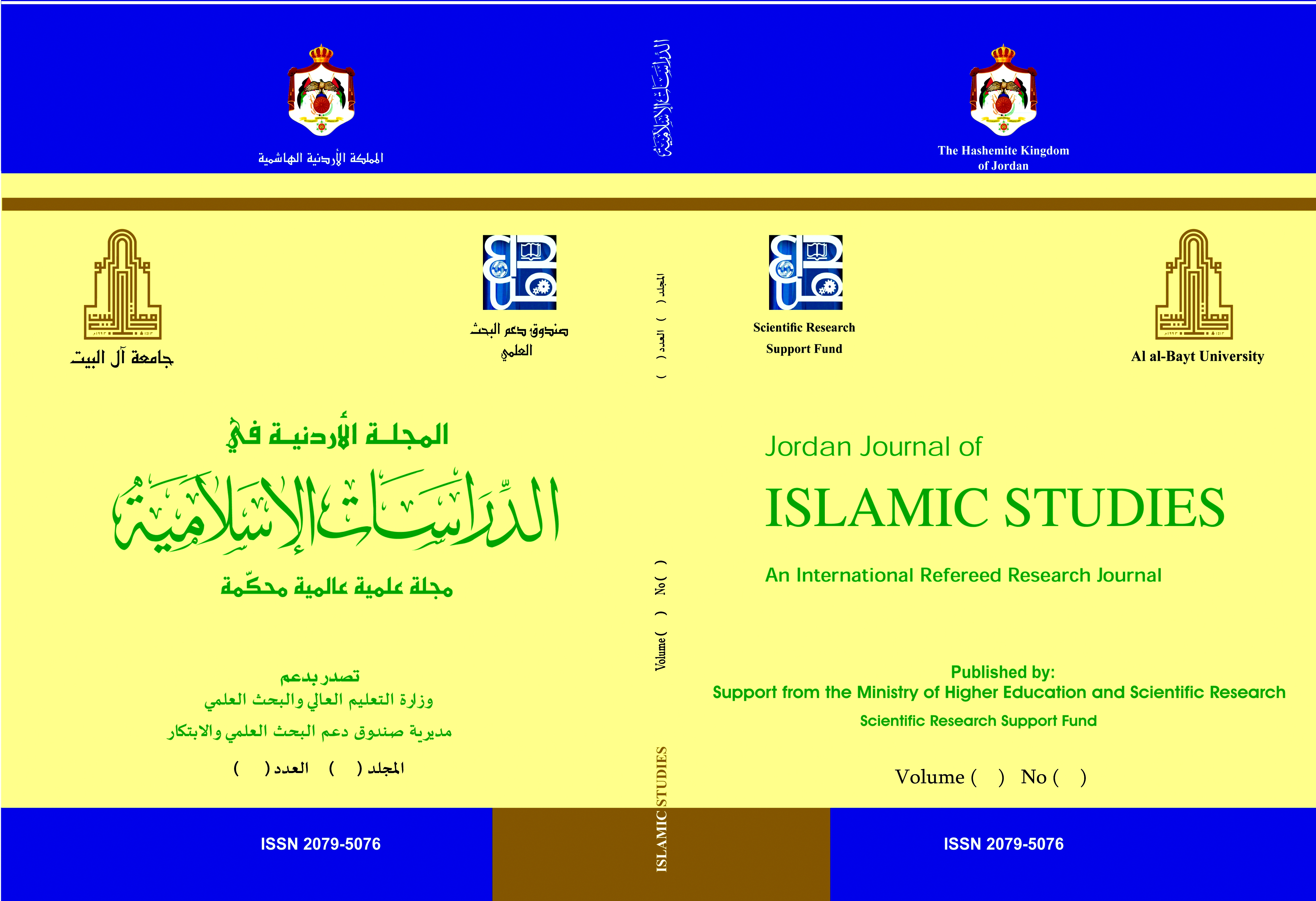Jordan Journal of Islamic Studies

Abstract
تمّ في هذه الدراسة الكشف عن المنطلقات الفكريّة التي ارتكزت عليها آمنة ودود في تفسيرها للآيات القرآنيّة المتعلّقة بمكانة المرأة وعلاقتها بالرجل في كتابها (القرآن والمرأة)، ثم نقد تلك المنطلقات بميزان الأدلّة النقليّة والعقليّة، بالإضافة لمناقشة أهمّ آرائها المتعلقة بمكانة المرأة في القرآن. من نتائج الدراسة:
أولاً: اعتمدت آمنة ودود منطلقات فكريّة حداثيّة، نتج عنها أحكام مُخالفة لمراد القرآن فيما يتعلّق بقضايا المرأة.
ثانياً: لقراءة ودود النسويّة للقرآن مقصدان رئيسان:
- الطعن في التراث التفسيري لعلماء المسلمين، وتصويره بأنَّهُ تفسير ذكوري غير موضوعي.
- شرعنة المساواة الجندريّة وآراء المنظمات النسويّة المتطرّفة، الداعية لتحرير المرأة من أحكام الإسلام.
الكلمات المفتاحيّة: القرآن والمرأة، آمنة ودود، تفاسير نسويّة جندريّة.
The present study explores the intellectual premises on which Amna Wadoud relied in her interpretation of the Quranic verses related to the status of women and their relationship with men in her book (Qur’an and Women). The study also criticizes these premises using both textual and rational evidence and discusses Wadud’s most important views regarding the status of women in the Qur’an. The main findings of the study are:
First: Amena Wadoud bases her views on modern intellectual premises, which resulted in judgments contradicting the Quranic views on women’s issues.
Second: Wadoud’s feminist reading of the Quran serves two main goals:
- Contesting Muslim scholars’ exegetical heritage and portraying it as a subjective masculine interpretation.
- Legitimizing gender equality and the views of extremist feminist organizations which seek to liberate women from the rulings of Islam.
Key words: Quran and Women; Amena Wadoud; Feminist Gender Interpretations.
Recommended Citation
Al-Zubaidi, Faraj
(2022)
"منطلقات الانحراف الفكري لدى آمنة ودود في كتابها "القرآن والمرأة" The Premises of Intellectual Deviation of Amna Wadoud in her Book “Quran and Women”,"
Jordan Journal of Islamic Studies: Vol. 18:
Iss.
4, Article 17.
Available at:
https://digitalcommons.aaru.edu.jo/jois/vol18/iss4/17

